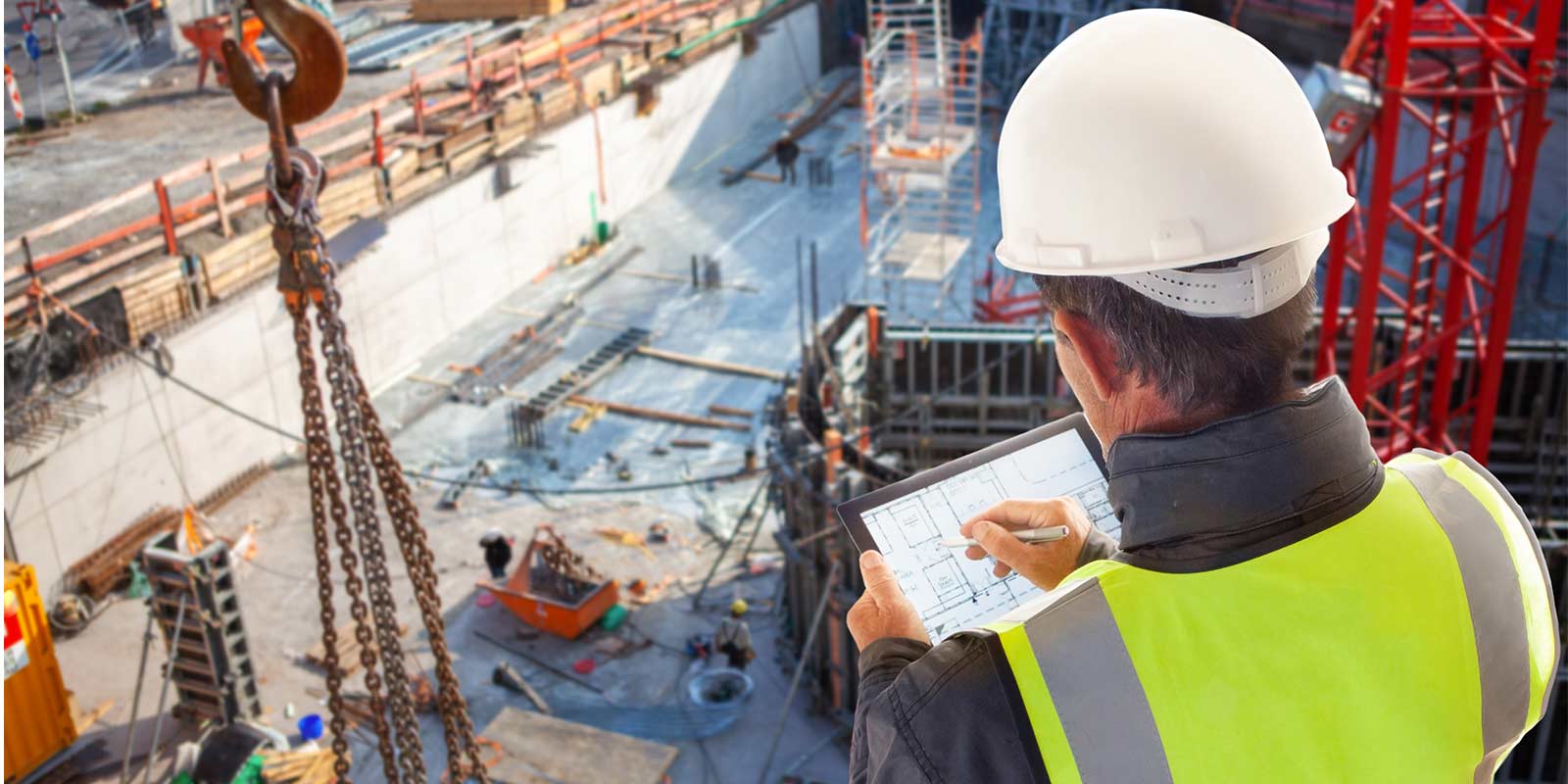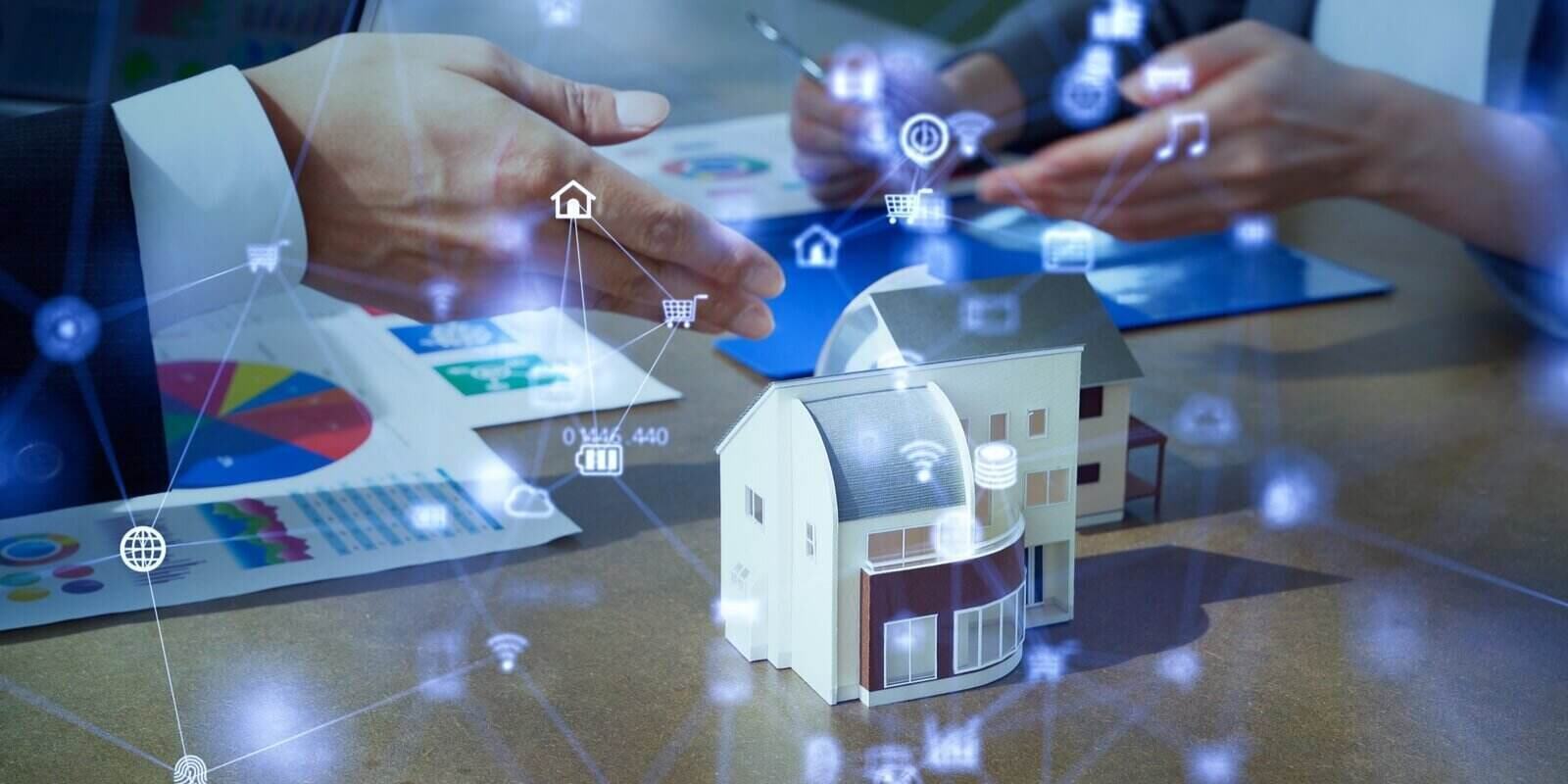12 Ways Technology is Changing the Real Estate Industry

The real estate industry has long relied on face-to-face interactions and hands-on approaches, emphasizing the relationships cultivated by brokers, developers and management companies. While this remains a core aspect, technology has spurred a dramatic transformation in how real estate professionals and the industry as a whole operate.
While digital tools like online property listings and virtual tours have been around for years, newer technologies such as artificial intelligence (AI), blockchain, and the Internet of Things (IoT) are taking innovation to the next level. These advancements streamline processes, lower costs, and improve the experience for all involved parties.
The Impact of Technology on Commercial Real Estate

Innovations in commercial real estate have improved decision-making and transformed traditional workflows to enable firms to develop better projects on time, within budget, and with greater satisfaction for customers and investors.
To remain competitive in this rapidly evolving landscape, commercial real estate firms are embracing cutting-edge technologies to streamline operations, enhance tenant experiences, and achieve sustainable growth. This shift is not just a trend—it’s a necessity. A 2023 Deloitte report found that 80% of commercial real estate executives consider technology adoption crucial for meeting tenant demands and improving operational efficiencies.
1. Utilization of ML and AI Technologies in Property Valuation
Historically, property valuation depended heavily on manual data collection and analysis, making them time-consuming and subject to human bias.
Machine learning (ML) and AI technologies offer a transformative solution, improving accuracy and reducing biases in property valuation. AI-driven platforms analyze vast datasets, including market trends, historical transactions, and neighborhood dynamics, to provide precise, real-time property assessments. When combined with human expertise, these tools generate highly reliable results.
Additionally, AI models can predict future property values by analyzing projected economic indicators, enabling stakeholders to plan long-term strategies more effectively.
For commercial real estate investors, these insights ensure better investment decisions and risk mitigation.
2. Virtual Reality for Property Marketing and Leasing
Traditional 2D property images often fail to provide buyers with the comprehensive perspective they need. With virtual reality (VR), potential tenants and buyers can now take immersive virtual tours of properties from anywhere, eliminating the need for on-site visits.
VR enables users to place furniture, experiment with layouts, and customize designs in real time, creating a highly interactive and engaging experience.
For leasing agents, VR reduces the time and effort associated with physical property showings and expands their reach to a wider pool of prospective tenants. By incorporating VR into their marketing strategy, property managers can boost client engagement, accelerate leasing decisions, and gain a competitive edge in the market.
3. Blockchain Integration in Commercial Real Estate Transactions
Industries handling high-value transactions require secure, transparent, and efficient processes. Blockchain technology meets these needs by providing a reliable framework for record-keeping and transactions. By replacing traditional, paper-heavy workflows with blockchain-based smart contracts, real estate transactions become faster, more efficient, and more dependable.
Blockchain-powered real estate systems create immutable records of property ownership and payment histories, reducing the likelihood of fraud and ownership disputes. Through the use of smart contracts and automated escrow, blockchain enables trustworthy peer-to-peer property transactions, eliminating the need for intermediaries such as title companies or attorneys.
Developers can further leverage blockchain to tokenize real estate assets, enabling small-scale investors to acquire fractional ownership of properties. This innovation democratizes property investment while providing developers with increased liquidity by bypassing the complexities of traditional real estate sales.
4. Digital Twins in Commercial Property Management
A digital twin is a virtual replica of a physical object, such as a building or construction site. In commercial real estate, digital twins are transforming property management and construction in multiple ways:
- Remote Monitoring: Property managers can use digital twins to monitor critical systems such as HVAC, lighting, and security in real time, ensuring smooth operations without the need for on-site presence.
- Predictive Maintenance: By analyzing operational data collected from equipment sensors, digital twins identify potential issues before they become critical, allowing for proactive repairs. This approach minimizes downtime and extends the lifecycle of key systems and equipment.
- Virtual Walkthroughs: Digital twins facilitate virtual walkthroughs, allowing professionals to test and modify designs while enabling tenants to explore and plan their spaces remotely.
- Sustainability: In the construction industry, digital twins allow developers to build and test prototypes of buildings digitally, conserving raw materials and resources for final implementation.
5. Enhanced Market Research and Analysis
Unlike commodities with universal appeal, real estate is shaped by individual preferences, social trends, and other nuanced factors. Technology-powered market research equips real estate professionals with the tools to understand these nuances and develop highly targeted marketing campaigns.
Big data analytics platforms aggregate and process information from multiple sources, such as property listings, economic reports, and demographic data, yielding valuable insights to guide marketing and investment decisions.
These marketing systems can incorporate Geographic Information Systems (GIS) to enhance site selection by overlaying data layers to identify optimal locations.
Additionally, predictive analytics tools forecast market shifts, enabling real estate firms to stay ahead of trends.
Together, these technologies empower real estate executives to make data-driven decisions that maximize profitability while mitigating risks.
6. Create Efficiency with Building Information Modeling
The integration of technology across all stages of real estate development drives cost savings, shortens timelines, and improves project outcomes.
One essential tool in this process is Building Information Modeling (BIM). BIM systems facilitate collaborative planning by generating detailed, real-time 3D models of construction sites. These models allow developers to make adjustments on the fly, reducing costly design errors, saving materials, and speeding up construction timelines.
Additionally, project management software enhances team communication, ensuring deadlines are met and budgets remain on track. To maximize the benefits of these tools, partnering with software evaluation and selection consultants helps construction firms identify the most suitable solutions for their specific needs.
By leveraging these technologies, property development becomes more efficient, cost-effective, and aligned with project goals.
7. Improved Tenant Experience Through Smart Building Solutions

Modern buildings are leveraging smart solutions to create customized, responsive environments that enhance tenant satisfaction.
By utilizing technologies like Power over Ethernet (PoE) and IoT-enabled systems, smart solutions integrate building-wide functions such as lighting, temperature control, and security into a unified network infrastructure. Tenants can easily interact with these systems through portals or mobile apps, giving them greater control and personalization over their spaces.
In addition to improving tenant experiences, smart building solutions contribute to making buildings more energy efficient.
8. Enhanced Sustainability in Commercial Real Estate
Technology plays a critical role in achieving green building objectives. IoT sensors and smart energy systems enable property managers to monitor resource usage, optimizing energy efficiency and reducing waste. Renewable energy technologies, such as solar panels, further contribute to reducing carbon footprints and lowering utility costs.
Furthermore, AI-powered analytics provide valuable insights into the performance of these sustainable alternatives, allowing for continuous improvement.
As environmental consciousness grows within the real estate market, green-certified buildings powered by these technologies may have higher values.
9. AI-Driven Property Management and Maintenance
AI-powered property management systems streamline routine tasks such as rent collection and maintenance scheduling, enabling real estate managers to focus their time differently.
AI maintenance systems analyze equipment usage data to identify potential issues before they escalate to costly repairs. This not only enhances tenant satisfaction but also reduces operational expenses. Additionally, AI systems generate detailed reports on operational efficiency, offering actionable insights for building managers to improve processes and innovate.
10. Virtual Assistants for Tenant Communication and Support
AI-powered virtual assistants are transforming tenant communication by offering instant, 24/7 support. These assistants handle common inquiries, such as rent payment details and repair tickets, lightening the workload on property managers.
Through natural language processing (NLP), virtual assistants deliver interactions that feel human-like. Advanced machine learning models enable these systems to learn from tenant interactions over time and improve their responses and capabilities.
11. AI for Space Optimization and Utilization
By using AI-powered tools, developers can ensure that every square foot of their commercial property is utilized efficiently.
By analyzing occupancy patterns and tenant behavior, these systems offer recommendations for layout changes or reallocation of underutilized spaces. For example, AI can suggest converting underused conference rooms into coworking areas or retail spaces based on demand trends.
With dwindling space for developments in urban areas, this insight is invaluable for developers aiming to maximize profitability and create tenant-centric environments.
Beyond recommendations, AI tools can simulate layout changes, allowing property managers to get an idea of what spaces will look like and how operational costs may change. This data-driven approach supports better decision-making, enhances tenant satisfaction, and boosts revenue.
12. Automation of Lease Administration and Property Inspections

Automation streamlines complex processes such as lease administration and property inspections. AI-powered tools simplify lease tracking, renewals, and compliance, reducing errors and ensuring timely execution.
For property inspections, special programmable autonomous drones provide detailed assessments of building conditions, eliminating the need for manual evaluations. These drones can perform routine inspections of rooftops, parking lots, and external building structures, identifying potential issues such as cracks, leaks, or security vulnerabilities.
Equipped with advanced imaging technologies such as infrared sensors, drones detect problems that are invisible to the naked eye, like heat loss or water intrusion. Beyond maintenance, drones enhance security by conducting regular patrols and monitoring large commercial complexes. This technology not only reduces labor costs but also ensures faster, more accurate assessments.
Develop an IT Plan That’s Right for Your Business
Technology is transforming commercial real estate, with stakeholders across the industry embracing its potential. However, without strategic planning and execution, technology adoption can become more of a liability than an asset.
At Hartman Executive Advisors, we combine the expertise of seasoned technology and business leaders with deep industry knowledge in real estate. Our team will help you develop an execute and IT strategy that aligns with your business goals and ensures your firm stays competitive in the market.
Schedule a free consultation today and learn more about how technology can better enable your business.


